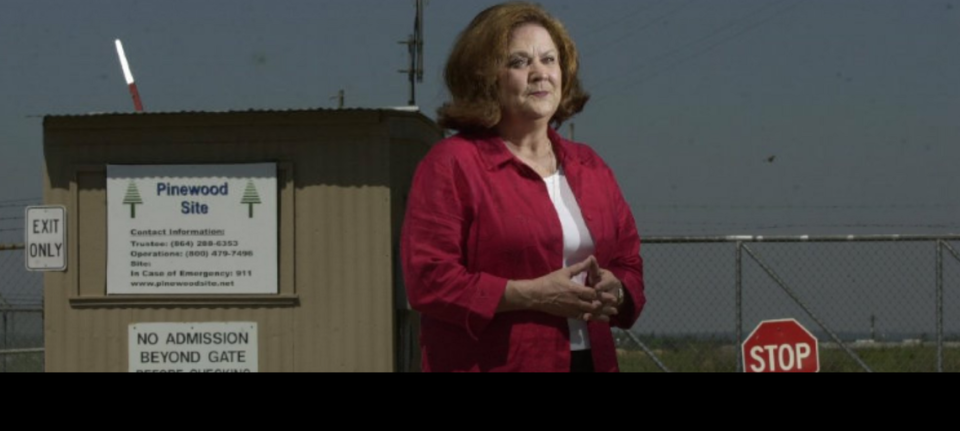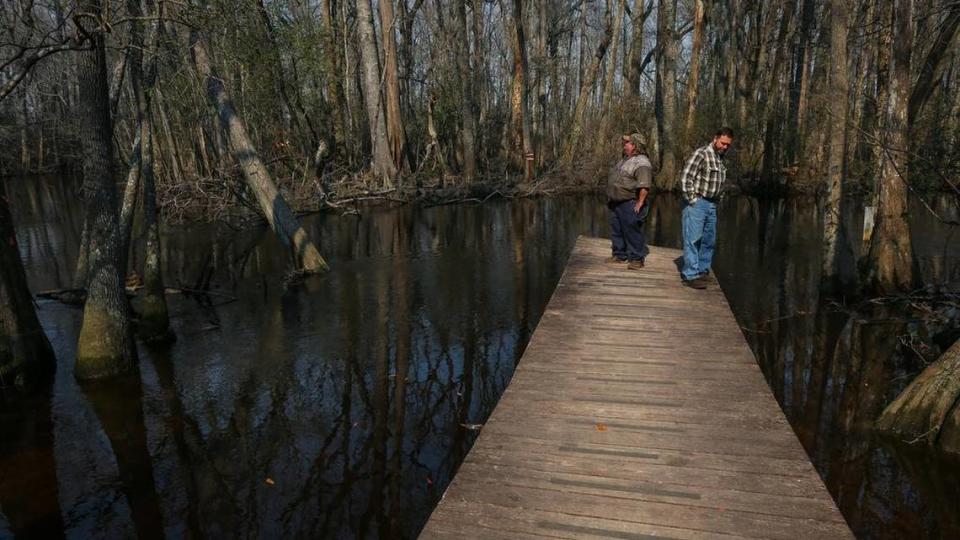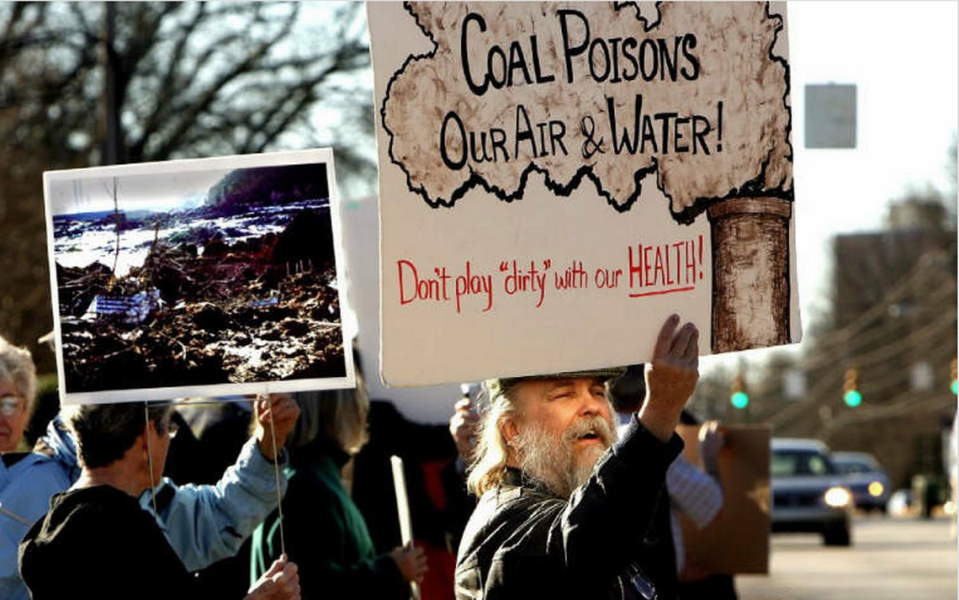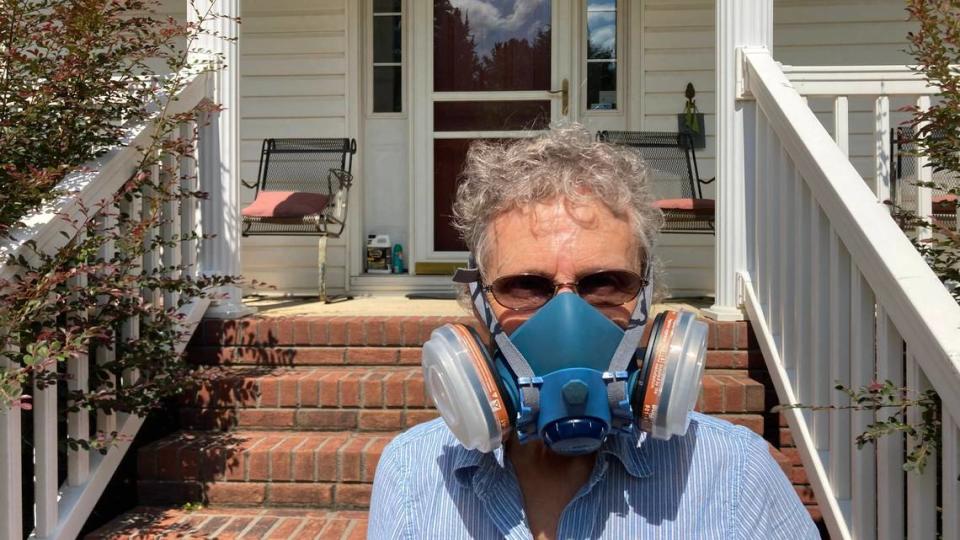Sprawling SC bureaucracy to shut down after decades of missteps, citizen frustration
Janet Lynam cringes when she thinks about the hazardous waste buried in a landfill near Lake Marion, a sparkling reservoir and cornerstone of South Carolina’s natural resources.
During the 1980s and 1990s, she and her friends fought to close the Sumter County industrial waste dump, worried that it would one day pollute the 100,000-acre lake and cost the public big money to clean up.
They eventually succeeded in their David-vs.-Goliath court battle — no thanks, she says, to the state Department of Health and Environmental Control. For years, DHEC failed to act on the community’s pleas to shutter the dump, doing so only after the court proceeding ended in the citizens’ favor.
Now, the department she fought with for so long is being dissolved. And the question is whether new agencies being developed to replace DHEC will do any better.
“In the politics of South Carolina, it may not matter,’’ said Lynam, a 76-year-old grandmother from Sumter.
It’s a concern other people have on their minds. On July 1, programs administered by the Department of Health and Environmental Control will be dispersed to other government agencies, including a new health agency and a new environmental department, as DHEC will cease to exist after 51 years of operation.
The idea is to make environment and health protection more efficient by giving those duties to agencies that will be able to focus on core missions better than the sprawling DHEC bureaucracy. In 2023, the Legislature voted to split up DHEC, with the effective date in 2024.
Among other things, the new Department of Environmental Services will be responsible for considering permits to discharge pollution to the air, land and water; monitoring contaminant levels in streams; overseeing the safety of drinking water; keeping track of aging and vulnerable dams; issuing warnings about polluted fish; and considering whether to approve development on the state’s coast.
But like Lynam, some people who have dealt with DHEC for years are skeptical that the shift will make any difference, most notably on environmental protection.
While DHEC sometimes gets good marks for its health protection efforts, the agency has been accused of bowing to business interests over safeguarding the environment — and those pressures are still there.
“My personal concern is it more likely gets less effective in protecting the environment than more protective,’’ said veteran Spartanburg lawyer Gary Poliakoff, an agency critic who has fought DHEC in court on multiple environmental issues.
“I am not a great fan of breaking it up. But I know there are people in the environmental community who think differently.’’
Former state Sen. Phil Leventis, a Sumter Democrat and one of DHEC’s chief critics while in office, said splitting the agency may not make a difference without leadership that is committed to protecting the environment and public health in the face of political pressure.
DHEC’s biggest problem through the years, he said, was a lack of courage by its leaders when big businesses and politicians pushed the agency to ease up on environmental protection.
“What you really needed (was) leadership committed to their charge, which is looking at public health and the environment,’’ Leventis said, noting that the DHEC governing board proved to be little more than “an arm of the state chamber of commerce.’’ Leventis was among those opposed to the Lake Marion hazardous waste dump, which at one point, reportedly had buried 5.6 million tons of toxic refuse from around the Southeast.
Leadership on environmental protection will now come from Gov. Henry McMaster, a Republican who supported the breakup of DHEC.
McMaster will have direct control over the Department of Environmental Services, which will absorb most of DHEC’s environmental duties. The new agency will be run by a director McMaster chooses.
Since its inception in 1973, DHEC has been overseen by a board the governor picked, which allowed non-elected members to shrink into the background amid criticism. With direct control, the governor will have more influence on how he wants the agency to operate — and will be directly accountable to the public, supporters of the restructuring effort say.
“The best thing you can do to ensure things are operating the way they should in the executive branch is to give accountability to an individual like the governor who is elected by all of the people,’’ Sen. Tom Davis, R-Beaufort, said.
Davis and Sen. Harvey Peeler, R-Cherokee, said people should expect improvement in the way services are provided.
Davis and Frank Holleman, an environmental lawyer from Greenville, said McMaster’s impact on how the state handles protection of the air, land and water is the key. The Republican governor has through the years taken multiple stances to protect the environment, including efforts to preserve land and clean up water pollution. He also opposed offshore oil drilling because of the potential damage that spills could have on state beaches.
“It’s a little bit out of the norm of the way people typically think of Republicans,’’ Davis said of McMaster’s stances to protect the environment.

McMaster, a former attorney general, took aim at DHEC in 2007 after The State reported on pollution at a nuclear waste dump in Barnwell County that was never fully revealed by the department. The newspaper, after reviewing previously sealed records, found high levels of radioactive groundwater contamination at the site and near a neighborhood. At the time, McMaster said DHEC had violated the state’s sunshine law when it initially allowed records to be sealed. He also said DHEC had done a poor job of providing information to the public about the pollution.
Brandon Charochak, a spokesman for McMaster, said the governor expects the new environmental agency to be open and do its job according to the law. Being answerable to the governor will “make the agency more accountable, transparent and effective in its mission,’’ he said in an email.
But future governors could have different views on how things should be run. And in getting rid of the DHEC board as part of the restructuring effort, people who disagree with staff enforcement and permit decisions will lose a public forum to challenge those decisions.
Instead of first appealing decisions to the board, they‘ll have to go straight to the Administrative Law Court. It’s a public process, like hearings before the DHEC board, but the administrative court can be more expensive and time consuming.
Officials at DHEC, who will move to the new environmental services department, believe the upcoming change will be better for environmental protection. It will allow the Department of Environmental Services to focus solely on environmental issues, DHEC spokeswoman Laura Renwick said.
“As its own agency, SCDES seeks to have greater visibility and heightened public awareness of the critical roles it has with environmental protection, which will result in greater investment and preservation of South Carolina’s natural resources,’’ Renwick said in an email.

In addition to the Department of Environmental Services, the dissolution of DHEC will also create the Department of Public Health. DHEC’s health division will become the new health department, continuing many of the same duties, including issuing birth certificates, developing public disease response plans and overseeing hospital expansions, among other things.
Legislators are now wrestling with whether to add other health related departments, such as the Department of Mental Health, to the new health department.
All told, DHEC’s approximately 3,500 employees will be dispersed mainly to the two new agencies, with the majority going to public health.
The split will disperse some duties now provided by DHEC to agencies other than the Department of Environmental Services or Public Health. Some employees, primarily milk and food inspectors, will be shifted to the S.C. Department of Agriculture. Peeler and others say it makes sense for the agriculture department to regulate milk since it already has some oversight of farms.
The cost of making the changes was initially estimated at $18 million, but that figure is likely to be higher. The state Department of Administration did not respond to a request for an updated cost of the DHEC breakup, but moving some of the agencies offices from Bull Street in Columbia to other sites is expected to cost tens of millions of dollars.
Davis said in the long run, there will be savings.
Meanwhile, DHEC says the public should not notice much change after the new agencies take charge. Initially, agency offices will for the most part remain in the same places they were under DHEC. The same services will be provided, officials say.
Agribusiness gets a boost
Although there is uncertainty on how the new environmental protection effort will work, at least one powerful interest group — the S.C. Farm Bureau — is pleased.
Upset with how the state was overseeing water withdrawals from rivers for irrigation, the Farm Bureau urged lawmakers to take away what others said was a system of checks and balances intended to protect rivers from being dried up by withdrawals.
The new Department of Environmental Services will now take on the duties of both studying the impacts of huge industrial scale farms on water supplies and approving withdrawals for large farms.
As it stands, DHEC approves large withdrawals of water for farms, while the state Department of Natural Resources’ hydrology division studies how to protect rivers from overuse. The DNR’s hydrology division will shift to the Department of Environmental Services.
The two agencies have not always agreed on how to oversee farms that need water, and the DNR has received its share of criticism by the farming community.
One key dispute is over the state’s surface water law and regulations that the DNR has said do not adequately protect rivers from overuse.
The law, which could allow some rivers to be sucked dry by industrial scale farms, is in conflict with the federal Clean Water Act, South Carolina leaders have been told.
The U.S. Environmental Protection Agency said two years ago that the state’s 2010 law was not scientifically sound, could allow rivers to be dried up by withdrawals and needed improvement. The DNR had generated similar questions through the years. But DHEC never raised public concerns and earlier this year, the agency said it would not seek changes in the water rules, saying they are adequate.
Now, the DNR’s water hydrology/water planning section and DHEC’s water permitting section will be under the new agency.
The Farm Bureau, one of the most effective organizations at lobbying legislators, supported the breakup of DHEC, and was particularly vocal about what it considered a need to consolidate water duties, which it said would make government more efficient.

“Creating government efficiency for all South Carolinians allows the state to leverage limited resources to better address the needs of all potential water users statewide by providing a holistic approach to water management,’’ the Farm Bureau said in an email.
Environmental groups have had a different view on consolidation of water duties under the new Department of Environmental Services.
“Placing the water planning and management role, and the water-regulatory role, within one agency would undermine the public trust,’’ according to a letter from the state Nature Conservancy to legislators.
Doug Busbee, who has for more than a decade pushed the state to better protect rivers, said legislators listened to the S.C. Farm Bureau’s effort to consolidate the planning and permitting programs, which takes away checks and balances.
“I feel like they get a free pass,’’ he said of industrial scale farms.
Officials at DHEC who are moving to the new agency said the DNR’s hydrology section should fit well within the new department. The programs can “work collaboratively,’’ Renwick said.
‘No one’ in control
The breakup of DHEC follows more than a decade of discussion, much of it spearheaded by Sen. Peeler, a Republican from Gaffney whose family once operated one of the most recognizable milk and dairy businesses in South Carolina.
In at least one instance, a company associated with the Peeler family had a disagreement with DHEC. The department shut down a skim milk production line for two days in September 2008 until a handful of bacteria problems could be straightened out, The State reported in 2009.
At the time, Peeler said he was unaware of the issue or why DHEC had cited problems at a bottler for his family’s milk company.
Peeler said his interest in breaking up DHEC is not related to any issue his family’s companies had. He no longer has anything to do with milk production after the main business was sold some 25 years ago., he said
Peeler, a conservative not associated with major environmental groups, said the department is outdated and a “1960s-model’’ agency whose time has come. He said both the public health and environment will be better served by separate agencies.
“This is an effort to bring healthcare and environmental stewardship into the 21st century,’’ Peeler said, adding that he does not think there is enough coordination and oversight at DHEC now. “This is so convoluted. It’s an old-timey way of doing things.’’
In the past, the influential Peeler has said DHEC had too much turnover at the top and needed a stronger hand. He formerly chaired the Medical Affairs Committee, which reviews DHEC board members and candidates for director. He now chairs the Senate Finance Committee, one of the Legislature’s most powerful committees.
“No one is in control at DHEC and hasn’t been for quite some time,” Peeler said in a 2020 news release announcing another attempt to split the department. “This legislation will ensure government runs more efficiently and will give each agency clearly defined responsibilities.”

One of the few combined health and environmental agencies in the country, DHEC has been accused for years of being slow to respond to problems and of allowing some environmental issues to fester without resolution.
As it stands, DHEC regulates everything from hospital expansions and tattoo parlors to hazardous waste landfills and seaside development. The agency also is responsible for protecting public health during disease outbreaks.
The department has offices throughout the state, with a budget of more than $660 million, composed of federal and state funds, as well as some other funding. It is one of South Carolina’s largest agencies. The Legislature created DHEC in 1973, merging the state health department and the Pollution Control Authority in an effort to provide better services.
Many longtime employees have said DHEC has been unfairly maligned, in part because so much of its operation involves regulating businesses. Businesses often aren’t happy when they don’t get the type of permit approvals they seek, while others say the agency is too quick to issue permits. The department rarely denies permit requests, but sometimes gives approval with additional restrictions.
Holleman, who has fought DHEC in court over what he says is the agency’s failure to more aggressively deal with pollution issues, said the department has plenty of capable people, but a lack of resolve.
“In my experience, most of the leadership at DHEC wants to keep its head down,’’ Holleman said. “They don’t want to rock the boat. They don’t want to make anybody mad.’’
The State chronicled many of DHEC’s shortcomings in a 2008 investigative series.
The newspaper found that DHEC had allowed “massive’’ amounts of pollution to pour from a coal-fired power plant; failed to seek enough funding to clean up groundwater polluted by underground storage tanks; issued a port expansion approval in Charleston before fully studying the environmental effects of having more ships at the port; failed to stop mega garbage dumps, despite public complaints; and allowed oceanfront development to occur in hazardous coastal areas, despite a state mandate to keep new construction back from the beach.
But those are just some of the problems.
Past troubles, future challenges
In one instance, the agency knew for 20 years that lead had polluted the drinking water of a small poor community southeast of Columbia, but failed to ensure the problem was resolved. Only after the newspaper exposed the issue – and found that some people had higher than average levels of lead in their blood – did DHEC help provide clean drinking water to the community.
In another, the department’s board dropped a requirement that the operator of the hazardous waste dump Lynam and Leventis fought on Lake Marion sock away more than $100 million in cash for long-term monitoring and cleanup of the site after it closed.
The dump eventually shut down in 2000, leaving the public to pay to prevent the site from leaking into the nearby lake and Sparkleberry Swamp, one of the most scenic areas of South Carolina. State taxpayers provide about $4 million a year to maintain the site to prevent leaks. So far, the landfill is not known to have leaked into the lake, but the state will have the responsibility to manage the site to prevent leaks for the next 80 years.
“Our level of frustration was as high as it could possibly be,’’ Lynam said of DHEC’s oversight of the landfill. “They ignored us.’’ She said DHEC bowed to big businesses. “They listened to the man with the suit and the briefcase.’’

More recently, residents near Charlotte have blasted DHEC for failing to prevent a paper mill from sending nauseating odors over their community. The department signed off on a plan to bypass a pollution control measure, which contributed to the stench.
DHEC also has been criticized for signing off on a plan to spread industrial waste on farm fields that were later found to have polluted groundwater that supply backyard wells in eastern South Carolina.
Generally, the department’s health side has received less criticism through the years, but it is not without blemishes.
The agency sustained withering criticism during the early months of the COVID-19 pandemic for what was considered a tepid response. In 2013, state senators blasted DHEC for what many considered a poor response to a school tuberculosis outbreak that affected dozens of children in Greenwood County.
Some of the department’s problems have centered on decisions by the board to choose legislative lobbyists to run DHEC, Leventis and other agency critics have said. Lobbyists were too prone to want to get along with the Legislature when sometimes they needed to stand up stronger for public health and the environment, critics say.
It is not unusual for DHEC to refuse to provide positions on whether a policy is good or bad for the state.
Leventis, the former Sumter senator, said DHEC has been an agency that never protected the environment as it should have.
Now, DHEC’s time is about to end and it will take a while to determine whether the state’s efforts to protect the environment will improve with a new structure. Leventis and Holleman said they hope South Carolina will find an improved way of protecting the landscape.
“It’s not like this is a slam dunk for the bad or a slam dunk for the good,’’ Leventis said. “It’s a lot about the people you surround yourself with.’’



